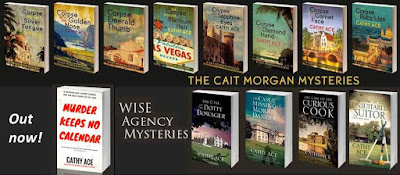Craft: Which crime fiction archetype do you find truly
essential to the genre? Which would you like to see retired for a while?
Having been briefed
to not use a Jungian interpretation of the word “archetype” for this blog, I
shall also add that I will also do my best (WARNING: it’s going to happen however hard I try!) to
avoid alluding to the work of Canadian Northrop Frye, who was instrumental in
developing an at-the-time revolutionary understanding of literary criticism,
placing at the center of his “archetypical criticism” the idea of a framework
of shared mythology lying behind any “current” ideology that might be
expressed.
I should also tell
you – by way of full disclosure – that I studied literature at university, until
I was completely turned off by a tutor whose almost-manic espousal of the Cambridge
Critics’ approach led me to change my specialism from literature and philosophy
to psychology and sociology. I’m glad I did, because it allowed me to seek to
understand the human condition on my own terms – then interpret it in my writing
– rather than spending years critiquing how others wrote about it, with no suitable
background knowledge: a process of literary criticism based upon linguistics,
sociological, psychological and philosophical insights needs an understanding
of those very issues…so I decided to start there, rather than with the
criticism itself.
To be clear, when it
comes to archetypes I’m talking about the slutty femme fatale who'll do anything to get what she wants...which usually involves the use then downfall of a man; or the divorced
cop/PI with a drinking/smoking/etc. problem who, nevertheless, pursues justice at all costs; busy-body sleuths who are actually motivated by an overwhelming sense of right vs wrong, and are determined to see that those who do wrong are punished; the brilliant
if eccentric investigator who bobs and weaves through complex puzzle plots, often seeming to want to solve them for the sake of the puzzle not the victim...and so forth.
And, to answer today’s question – I
like them all, and believe they are all as necessary today as they have ever
been. And when I say “have ever been”, what I mean is they have always been there,
since the earliest mythologies.
Why do I like them all?
I see these archetypes
as being the benchmarks against which readers read, and I believe we authors
write with them in mind, write around them, and write against them as we craft
our tales, and the people who populate them. We cannot ignore them, because
they are so deeply entrenched in our crime-fiction-fan minds that they are a
constant reference point.
As an author, I constantly refer to our collective understanding of archetypes, and
I don’t think any of them need to be retired because…what’s the point? They
still exist in every reader’s mind, even when they aren’t on the page, and each
reader has enough choice of authors and titles available to them to avoid any
that irk them, personally.
To be honest, I believe many readers are drawn to
archetypes, because they allow for so much character-based storytelling to be dealt
with in what’s effectively a “shorthand”, allowing the author and the reader to
work in cahoots…until, maybe, the author throws a twist into the tale to
delight the reader…which, in itself, usually uses the “rules of archetype” to
allow the twist to be a twist.
Good writers give us
new interpretations of archetypes; the best writers nuance them to the extent
we can even see a potentially new archetype emerge. But even then – even if
they manage that – the benchmarks are still there.
You
can find out more about Cathy, her work and her characters at her BRAND NEW website,
where you can also sign up for her newsletter with news, updates and special
offers: http://cathyace.com/


3 comments:
"...I believe we authors write with them in mind, write around them, and write against them as we craft our tales, and the people who populate them." Yes, we're often so worried about being original that we think of the archetype as a negative rather than an inspiration and a challenge. Good perspective here, thanks.
I think you're right, Cathy, and more tolerant than I was. It's the interpretation, not the existence, of the archetype that keeps them from becoming stereotypes. A good writer adds a fresh interpretation and transcends what annoys readers who spend much of their time imbibing crime fiction.
Thanks Rae and Susan...thinky feedback on a thinky piece :-)
Post a Comment